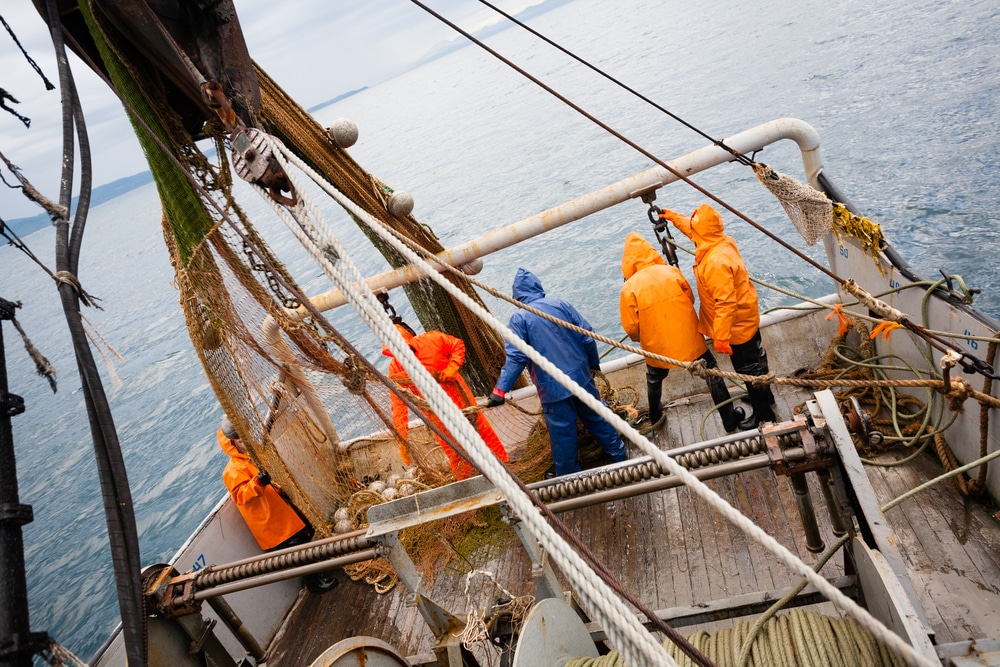
Commercial fishing is one of the most dangerous occupations in the United States. According to research, around 50 percent of maritime accidents occur in the commercial fishing industry. These accidents and resulting maritime injuries occur for a number of reasons. Bad weather, malfunctioning fishing equipment, inadequate training and mechanical failure are the most commonly cited. But what about germs?
At a time when people are more concerned about germs and viruses than ever, we must consider a lesser-discussed hazard for commercial fishermen – communicable diseases.
Communicable Diseases on Commercial Fishing Vessels
Commercial fishermen work in conditions that are favorable for communicable diseases. Fishing vessels have confined interior spaces that fishermen must share. The working conditions on board the vessel are also unsanitary, which allows germs to thrive. Add to these factors the fact that some fish carry parasites, bacteria or toxins and fishermen are most certainly at risk for disease.
The most common diseases that commercial fishermen experience include:
Influenza
Commonly referred to as the “flu,” influenza is common on vessels. On fishing vessels, the flu can develop at any time of the year and can quickly spread among crew members. Depending on the strain and severity, the flu may be mild, or can be life-threateningly severe.
Norovirus
Norovirus is a highly contagious virus that causes extreme nausea, vomiting and diarrhea. This virus causes the stomach and intestines to become inflamed (gastroenteritis). The illness develops after eating or drinking contaminated food or water.
Hepatitis A
Hepatitis A is a highly contagious virus that spreads through contaminated water, food or fecal matter. Person-to-person transmission is most common. Someone can carry the virus for months before experiencing any symptoms. Symptoms include nausea and vomiting, abdominal pain, fever, joint pain, intense itching and weakness.
Legionnaires’ Disease
Legionnaires’ disease is caused by exposure to legionella bacteria. The bacteria lives, most commonly, in water – including natural and artificial water sources. Legionnaires’ disease causes headache, muscle pain, chills and high fever. As the disease progresses, symptoms may also include vomiting, difficulty breathing, chest pain, mental confusion and seizures.
Bed Bugs
Bed bugs are a common problem on ships. They should be treated immediately to avoid spreading. Without proper treatment, bed bug bites are susceptible to infection.
These are some of the most common communicable diseases that can spread on fishing vessels. There are also some diseases that can spread between seafood and humans, which are also a concern.
How Commercial Fishermen Can Prevent Communicable Diseases
Commercial fishermen cannot control many aspects of their environment or working conditions. They can, however, take measures to be as safe and healthy as possible while they are out on the water. To prevent communicable diseases on board fishing vessels, fishermen can do the following:
- Routinely disinfect potable water storage tanks and distribution systems.
- Ensure that the vessel is stocked with fresh fruit and vegetables, as well as non-perishable items.
- Follow food safety and preparation guidelines, such as:
- Wash hands with soap and water before preparing food
- Separate raw meat and seafood from vegetables or fruit
- Disinfect work surfaces, cutting boards and cookware
- Cook all foods to the proper internal temperature
- Store food in the refrigerator or freezer until ready to cook
- Anyone who has symptoms of illness – diarrhea, vomiting or fever – should not prepare food or be in contact with food preparation areas.
- Anyone with lice, scabies, athlete’s foot or ringworm should avoid contact with other crew members and food preparation areas.
- Use antibacterial soap in all hand-washing stations. Crew members should wash their hands regularly.
- When showering, crew members should use soap and shampoo to help prevent spreading illness.
- Toilets and trash cans should be cleaned and disinfected regularly.
As this list suggests, good hygiene and food safety practices are among the best ways to limit exposure to, and spread of, communicable diseases.
Who is Responsible for Preventing Injuries or Illness?
Ship operators have a responsibility to ensure that vessel is clean and healthy. Operators must communicate policies and procedures for maintaining a safe work environment. They must also train crew members. When applicable, operators should provide personal protective equipment (PPE) that can help reduce the risk of injury or illness.
Crew members also have a responsibility to follow policies and procedures and behave in an acceptable manner. Crew members are responsible for their own actions, including adhering to hygiene and food safety guidelines. If they fail to do so, they put their crewmates at risk.
Ultimately, everyone on board a fishing vessel has some level of responsibility in reducing the risk of injury or illness. Many maritime injuries and illnesses are certainly avoidable if crew members follow guidelines. It is important that crew members understand their responsibilities and their legal rights if an injury or illness develops.
Sources: